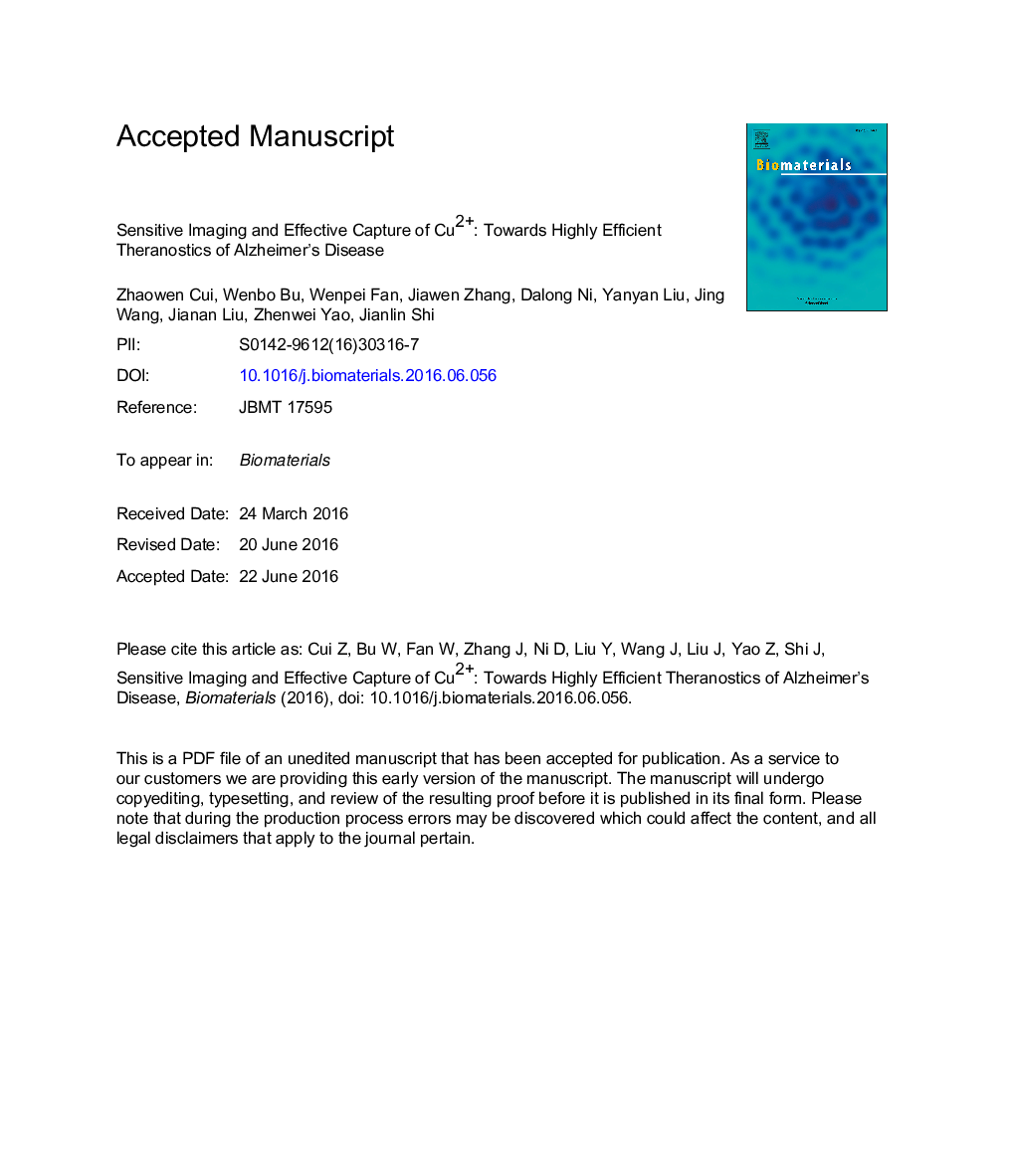| کد مقاله | کد نشریه | سال انتشار | مقاله انگلیسی | نسخه تمام متن |
|---|---|---|---|---|
| 6484839 | 364 | 2016 | 38 صفحه PDF | دانلود رایگان |
عنوان انگلیسی مقاله ISI
Sensitive imaging and effective capture of Cu2+: Towards highly efficient theranostics of Alzheimer's disease
دانلود مقاله + سفارش ترجمه
دانلود مقاله ISI انگلیسی
رایگان برای ایرانیان
کلمات کلیدی
موضوعات مرتبط
مهندسی و علوم پایه
مهندسی شیمی
بیو مهندسی (مهندسی زیستی)
پیش نمایش صفحه اول مقاله

چکیده انگلیسی
As a distinct feature of Alzheimer's disease (AD), the presence of excess metal ions in the brain is most probably one of the main causative factors for the aggregation of β-Amyloid (Aβ) proteins. The design of nanoprobes for detection and control of ion concentrations will be of great importance in predicting the progression of AD and simultaneously providing effective treatments. Herein, we report the design and synthesis of a novel yet smart nanoprobe that can sensitively detect the Cu2+ concentration and concurrently capture Cu2+ both in vitro and in vivo. The designed nanoprobe (UCHQ) combines two main components: upconversion nanoparticles (UCNPs) used for the detection and upconversion luminescence (UCL) imaging of Cu2+ upon 980 nm exposure and the chelator 8-hydroxyquinoline-2-carboxylic acid (HQC) used for chelating Cu2+ and AD therapy. The results show that the emission intensity of UCHQ is highly dependent on the Cu2+ concentrations due to the luminescence resonance energy transfer (LRET) from UCNPs to HQC-bonded Cu2+. Fascinatingly, the as-constructed UCHQs could be used for UCL imaging of Aβ both in cells and AD mice. Most importantly, UCHQs could not only inhibit the Aβ aggregation-induced apoptosis via capturing overmuch Cu2+ but also accelerate the nontoxic structural transformation of Aβ.
ناشر
Database: Elsevier - ScienceDirect (ساینس دایرکت)
Journal: Biomaterials - Volume 104, October 2016, Pages 158-167
Journal: Biomaterials - Volume 104, October 2016, Pages 158-167
نویسندگان
Zhaowen Cui, Wenbo Bu, Wenpei Fan, Jiawen Zhang, Dalong Ni, Yanyan Liu, Jing Wang, Jianan Liu, Zhenwei Yao, Jianlin Shi,